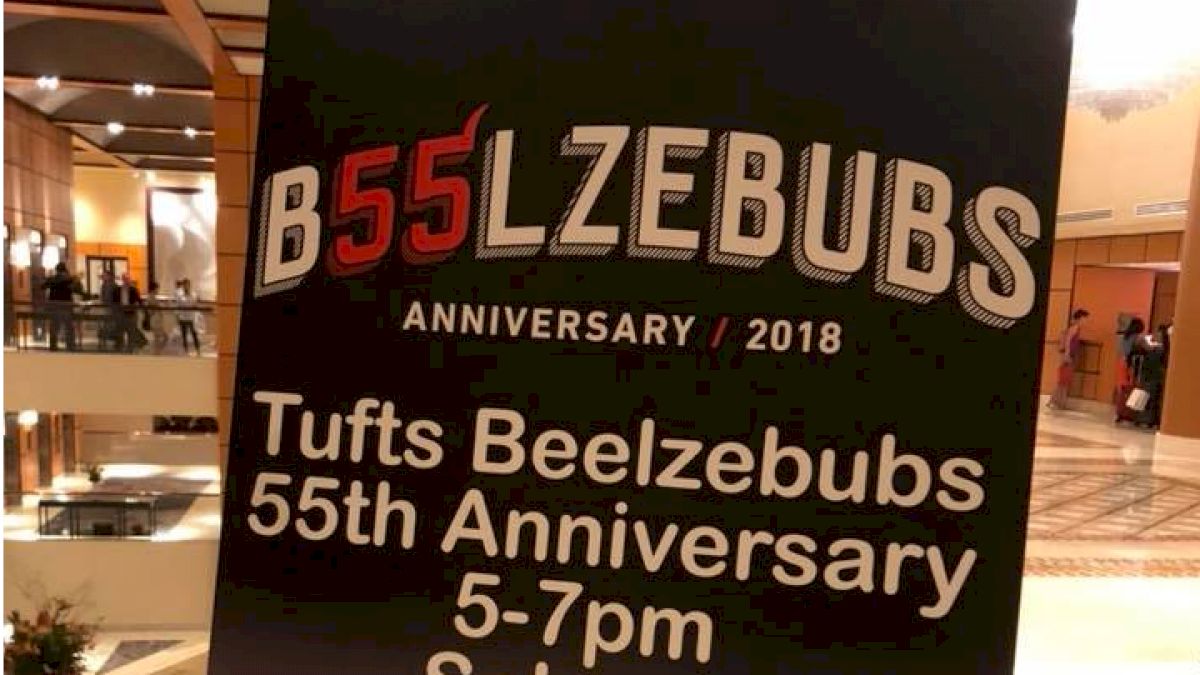The Importance Of Tradition
The Importance Of Tradition
Tradition is a concept that may be lost as the genre pushes for innovation and the next big thing, but it may be the thing we need most.

This weekend, nearly 150 former and current members of the Tufts Beelzebubs gathered in Washington, D.C., to celebrate the 55th anniversary of the group. A weekend full of song and time together to honor shared memories and traditions is a concept that may be lost as the genre pushes for innovation and the next big thing, but it may be the thing we need most. After all, how do you get where you’re going without knowing where you’ve been? Or something like that…
Looking at six decades of a cappella singers in one room brought about a lot of thoughts that seemed important to share. Here are the highlights:
The early evolution of a cappella is still relevant.
The first group to take the stage was the founding era of the Bubs: 1963-1967. Their music was before the era of instrument noises and vocal percussion, but it was (drumroll) a mashup. It just happened to be a combination of “Mandy” and “Daddy Get Your Baby Out Of Jail” and it had a whole lot of barbershop chords.
As we progressed through the '70s and '80s, the arrangements started to take on some familiar sounds — more syllables, more rhythm, and more complicated chords. Percussion was imitated with clapping and stopping and a little bit of snapping. So. Retro.
A little later, we entered the late '80s and were treated to some “historically accurate” vocal percussion. It sounded a lot like what every beginner beatboxer sounds like today. The early aughts brought a gender-bending rendition of “Nothing Compares.”
As the show closed in on the current group, there was Charlie Puth and wild stage antics, but also simple chords and body percussion.
Sometimes everything old is new again.
If you’ve ever had music in your life, you need music in your life.
As a professional singer, this one might have been the hardest one to realize. Once you have something like music in your life, it can be hard to let it go, even when you stop actively participating.
For an analogy, as a student I was also on the swim team. Outside of school, my life was singing and chlorine in mostly equal parts. Since graduation, music has taken center stage, but my inner mermaid — she’s still there. So when I had the opportunity to go to a reunion for my college swim team, I realized that we never really get away from the passions we once had. Fifteen years out of shape and surrounded by swimmers from every class but my own, I definitely felt like I was drowning and could barely imagine how my body ever did a real race, but the deep-seated love was there and the happy place in my soul was reignited.
I saw that this weekend. In a room full of (presumably) non-professional musicians, aside from Deke Sharon and Ed Boyer and a few others, music is no longer front and center in their daily lives. It didn’t have to be totally in tune or a perfect performance, but it did bring some moments of unfiltered joy as the former singers let the music back in for a day. They walked away from the stage, and the weekend, a little lighter in their hearts.
The world could use more of that. Just sayin’.
You’re standing on shoulders of giants. Respecting them will lift you higher.
The Bubs routinely create some of the most high-quality recordings in the collegiate sphere. They rely on the expertise of their alumni to help those recordings come to fruition. A strong alumni network comes with so many benefits for both the current students and the alumni.
The students get a sense of connection to their past, they can create without recreating the wheel, and they have a strong support system of knowledge, skills, and funding. The alumni get to stay connected to their passion in a way that is meaningful.
It becomes about more than just the music and that’s the best thing for the future of the art form.
So for the groups that don’t have this kind of foundation? Start one. Create something that gives you commonality that you’ll be able to share with the group 50 years from now. You’ll be glad you did.